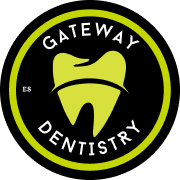
All about same-day crowns
A crown or (cap) is a cover that fits over a tooth that has been damaged by decay, broken, root canal treated, badly stained or misshapen. A crown looks and feels like a natural tooth and restores the strength and function of your tooth. CEREC same-day crowns require no impressions. We will design and create your crown and permanently bond it to your tooth all in one visit. No temporary crowns required!
What are the advantages of same-day crowns?
Before the technology came around, getting a crown took 2 to 3 appointments and required a notoriously uncomfortable temporary crown. Thanks to new techniques and equipment, getting your crown is easier than ever.
- No messy impressions. We use a highly accurate and comfortable digital 3D scan.
- Complete treatment in as little as one visit.
- Less drilling required. We can preserve more of your natural tooth structure.
Same-day crowns offer the following extra advantages:
Same-day crown treatment
Examining and preparing the tooth
During the appointment, we will examine your tooth. If the tooth is affected by decay, we will remove the damaged areas and clean it. If your tooth has stress fractures, a crown will help protect the tooth from breaking along the fracture. Then we will shape your natural tooth so the crown fits comfortably overtop.
Your crown custom made on site
Once your tooth has been prepared, we’ll use a 3D scanner to take a highly accurate digital scan of your tooth. We no longer require impressions or the use of trays. This 3D scan is used to create a digital model of your new crown. Your porcelain crown is made while you wait with our in-house machine.
Placement and polish
Your new crown will be bonded or cemented in place right away. No second appointment or temporary crown is needed. Your dentist will make a few final adjustments and ask how it feels to make sure it’s a perfect fit. After a final polish, your new crown is ready to go!
The cost of same-day crowns in Kanata
The out-of-pocket cost for a dental crown can vary widely from patient to patient. With a typical insurance plan a single crown averages out to about $200 to $600+. Without insurance a reasonable ball-park figure for a crown would be about $800 to $1200 and up. To get your mouth looking and feeling normal again, most people feel that a dental crown is an easy decision but the cost may still give you pause..
- The type of crown that is needed.
- The location and complexity of the procedure.
- The number of crowns that may be required.
- Combining crowns and other dental appliances like bridges.
- Supplies and equipment that are required for your specific treatment.
So what goes into determining the cost of a crown?
Remember, no dental practice can provide an accurate quote over the phone. Ultimately, your needs are as unique as your smile. It’s important to speak with a dentist and undergo an oral exam to find out all your treatment options and to receive an accurate quote. If you have dental insurance, we would be happy to supply you with a quote to submit to them so you can find out your out-of-pocket costs before you make a decision.
Contact us today
to schedule an initial consultation & exam.
Your consultation will include an examination of everything from your teeth, gums and soft tissues to the shape and condition of your bite. Generally, we want to see how your whole mouth looks and functions. Before we plan your treatment we want to know everything about the health and aesthetic of your smile, and, most importantly, what you want to achieve so we can help you get there.
Frequently Asked Questions









